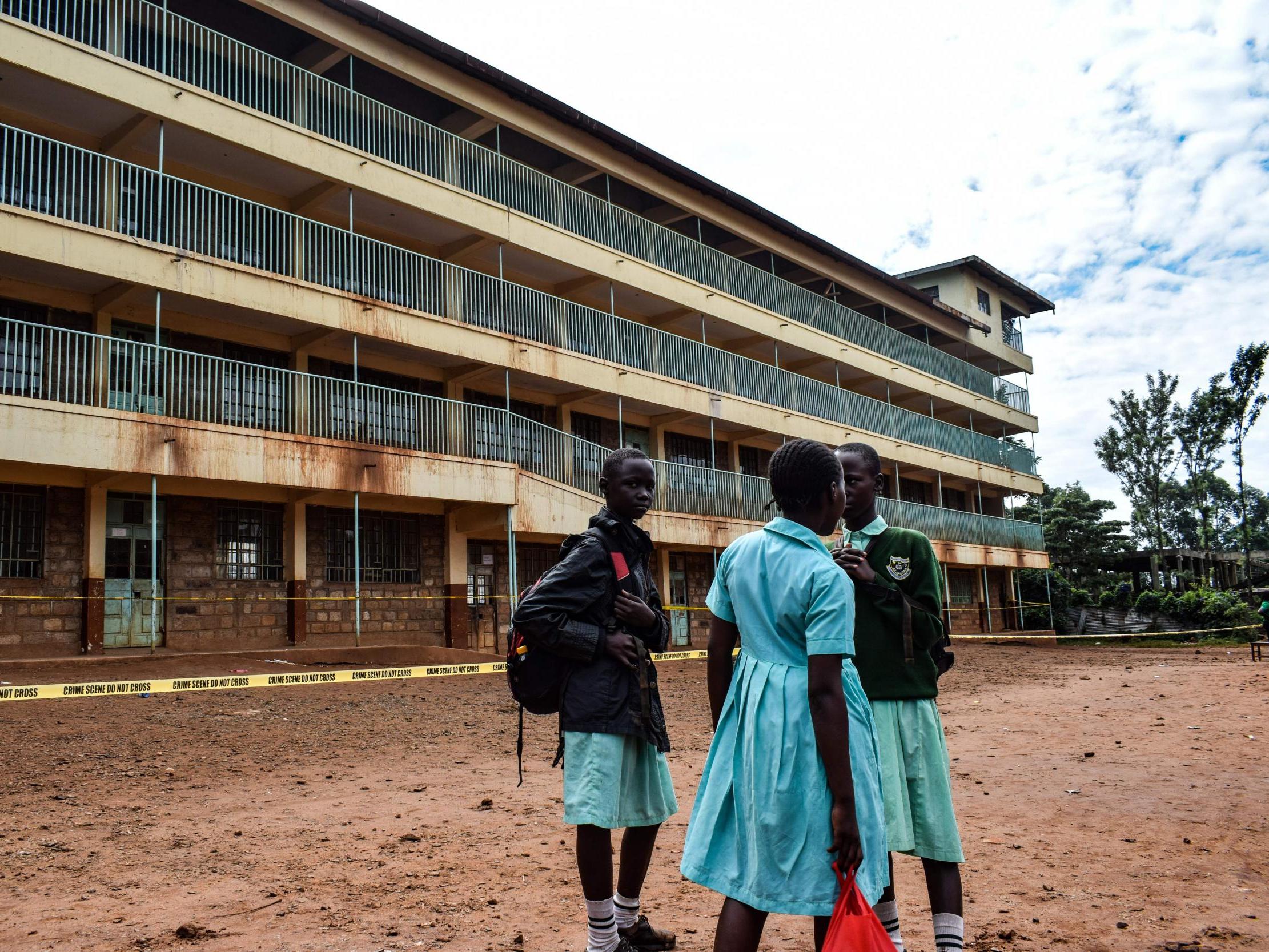Top Kenyan university blames ‘reckless’ female students for being raped
Students advised to remember key phone numbers off by heart

Your support helps us to tell the story
From reproductive rights to climate change to Big Tech, The Independent is on the ground when the story is developing. Whether it's investigating the financials of Elon Musk's pro-Trump PAC or producing our latest documentary, 'The A Word', which shines a light on the American women fighting for reproductive rights, we know how important it is to parse out the facts from the messaging.
At such a critical moment in US history, we need reporters on the ground. Your donation allows us to keep sending journalists to speak to both sides of the story.
The Independent is trusted by Americans across the entire political spectrum. And unlike many other quality news outlets, we choose not to lock Americans out of our reporting and analysis with paywalls. We believe quality journalism should be available to everyone, paid for by those who can afford it.
Your support makes all the difference.A leading Kenyan university has heaped blame on female students who are raped and claimed their “reckless” behaviour caused them to become sexual violence victims.
The University of Nairobi said the mounting number of incidents of rape and robbery of university students in the capital of Nairobi took place at particular locations which are nearby to university affiliated buildings.
The memo said: “In all the three rape incidences reported last year, a clear case of recklessness on the part of our female students can be drawn”.
The memo, which all pupils received, then drew attention to a case where it claimed a female student “entertained herself in various joints around the city and decided to walk all alone (drunk)” when her bag was grabbed and she was gang-raped by three men.
Students were also advised to remember key phone numbers off by heart in case they misplaced their mobile phone and ensure they were with friends they trusted on outings.
The university has now apologised for the memo and the institution's vice-chancellor Stephen Kiama said it had been “insensitive” and is not reflective of the university's ethos.
The memo has sparked a backlash – with high-profile individuals hitting out at it on social media – and a petition condemning it garnering almost 6,000 signatures.
“Misogyny has been time and again endorsed by the powers in play in Kenya, and that has got to stop,” states the petition. “You do not incriminate females in their own rape cases and get away with it.”
Adelle Onyango, a rape survivor who is founder of “No Means No”, voiced her outrage to her 374,000 Instagram followers.
She hit out at the university for assigning “blame NOT on the rapists but on the victims and even expose one victim’s story where they assign blame to her!”
Ms Onyango added: “And then these “TIPS” y’all keep throwing around at women. Right now, where we go, what time we will go there, who we will go with, how we will get there, what we will wear etc is governed by how safe we will be and that is NOT normal neither is it OK! If men just stopped raping us, rape will stop.
“This is what victim shaming looks like. This is what normalisation of rape looks like. And we will not stand for it.”
The Kenyan National Bureau of Statistics estimates some 14 per cent of Kenyan women and six per cent of men aged 15-49 have suffered sexual violence at least once in their lives.
Human Rights Watch has previously warned a history of impunity for sexual violence in Kenya severely damages women’s capacity to report incidents of rape and sexual harassment to the police. In a 2017 report, the prominent organisation found women who attempted to report sexual violence encountered police who ordered them away without bothering to take statements or mocked or verbally abused them.
Additional reporting by wires
Join our commenting forum
Join thought-provoking conversations, follow other Independent readers and see their replies
Comments